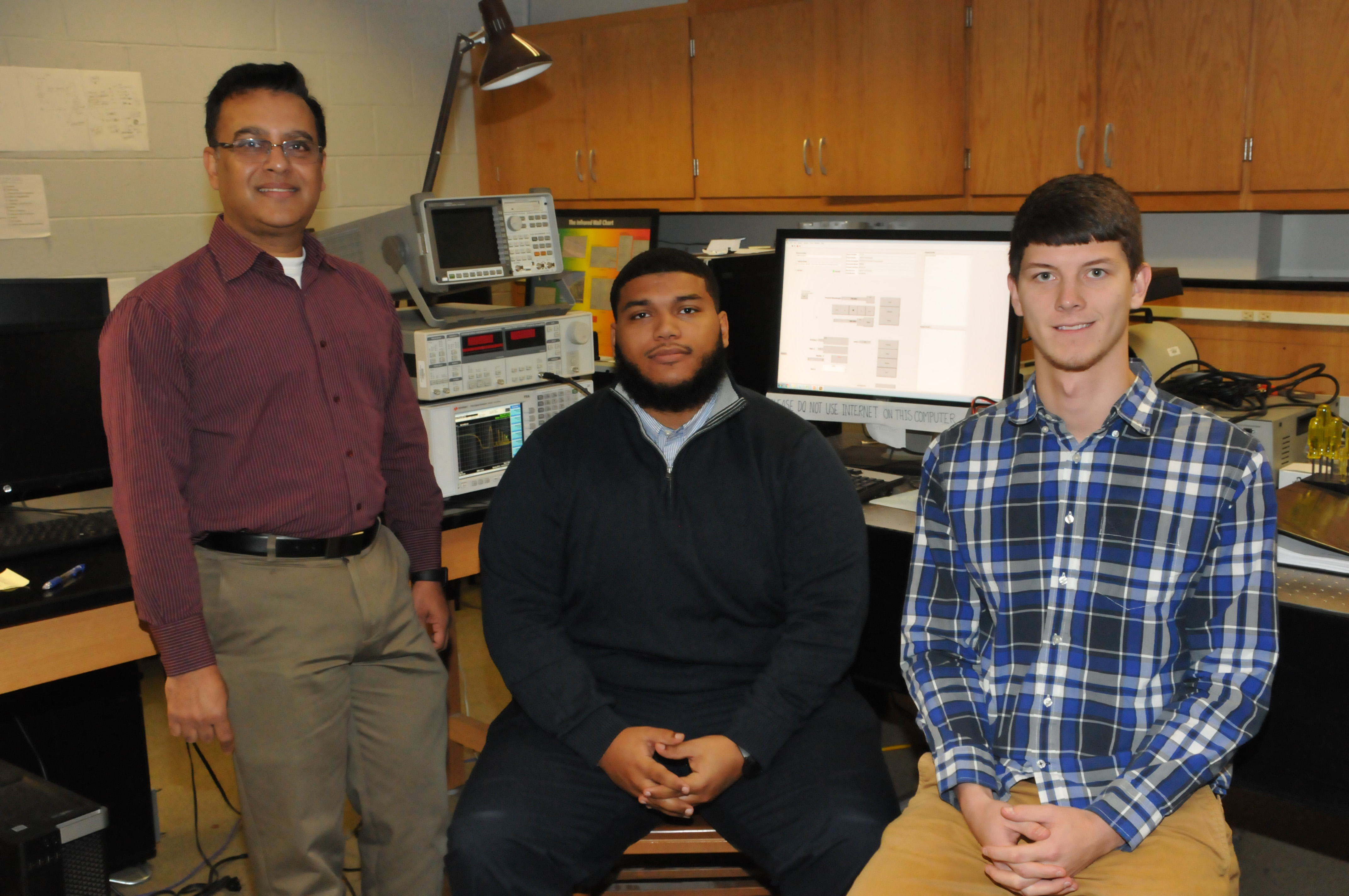
DSU Awarded $450,000 Air Force Research Grant
A Delaware State University physics and engineering faculty member recently received a three-year $450,000 grant from the Air Force Office of Scientific Research that will contribute to the development of new two-dimensional materials for the detection of infra-red light and other applications.
Dr. Mukti Rana, chair of the DSU Department of Physics and Engineering, is the principal investigator of the grant.
Dr. Rana and his research team will investigate the electronic properties of various combined layers of molybdenum disulphide (MoS2), which has unique properties that make it a promising candidate for use in memory chips. In addition to MoS2, the research team will do similar investigative work on tungsten disulphide (WS2) as well as an alloyed mixture of the two materials – molybdenum tungsten disulphide.
“Layered MoS2 is atomically thin and displays a wide range of remarkable electronic and optical properties that has potential to replace silicon in modern computer chips,” Dr. Rana said. “The materials we are investigating could also be used to fabricate new low power devices that will improve battery life in laptops and other handheld devices.”
He added that these materials could potentially be used in higher-capacity cache memories, which are important in multi-core microprocessors and solid-state hard drives where the atomic-scale thickness could result in order-of-magnitude increase in storage capacity with smaller device size.
The research into the electrical and optical properties could also help lead to the development more sensitive night-vision cameras, gas sensors as well as faster metal oxide semiconductor field effect transistor devices for various electronic detection and sensing applications.
Dr. Rana’s DSU team, the lead researchers of this grant, will also collaborate with researchers from Pennsylvania State University on the project.

